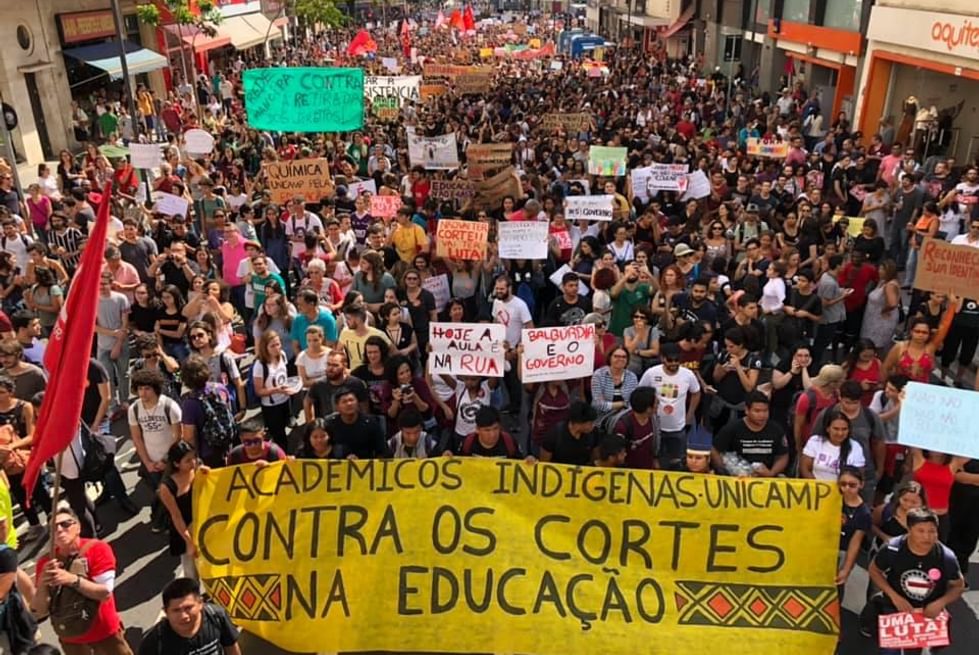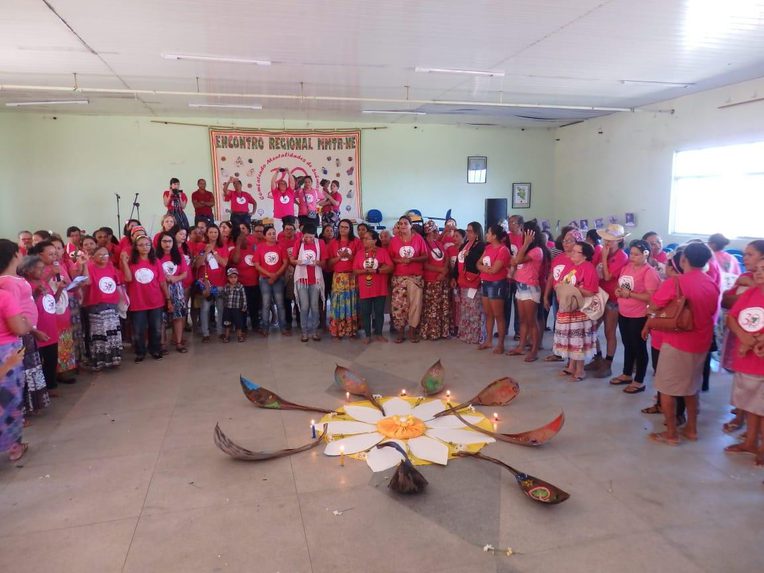Brazilian Rural Politics in Times of Silencing and Privatization
From the Series: Bolsonaro and the Unmaking of Brazil
From the Series: Bolsonaro and the Unmaking of Brazil


Agribusiness and family-owned farming have featured prominently in narratives about Brazil’s rural areas during the last decades. The relation between these terms invokes the Workers’ Party’s bet on the coexistence between large and small-scale properties, a bet whose expression we have witnessed in the investment on infrastructure and credit for production geared toward the international export market and the creation of policies favoring rural inhabitants as well as strategies for territorial development for traditional peoples.
This vocabulary has been picked up by our research interlocutors, whether industrialists, farmers, or agricultural workers. One major farmer from the Alto do Paranaíba region (in the state of Minas Gerais) tells us of the agrarian reform of coffee agribusiness, while in conversation with women agricultural workers belonging to the same region we hear that “coffee has brought life to the community.” What the farmer defines as agribusiness, the women see as the income which will allow them to secure their land and, consequently, their own existence. In other places, we became acquainted with a life that was thriving among houses, fields, and backyards because of state incentives to family-owned agriculture. None of this eroded the possibility of critique, however, for despite the fact that public policies such as the Bolsa Família (Family Allowance) and Programa Nacional de Fortalecimento da Agricultura Familiar (National Program for the Strengthening of Family Farming) have occasioned significant improvements in the lives of people who live in the countryside, the creation of agrarian reform settlements did not turn out as expected, and the country’s agrarian structure remains highly unequal.1
The anthropology of rural Brazil throws light on confrontations between the perspectives of agribusiness, rural workers, and the state, and it informs our view of the repercussions for rural politics of president Dilma Roussef’s impeachment. If, prior to the 2016 coup, we experienced the contradictions of an administration that seemed to bet on the balance between labor and capital, it is also our understanding that Roussef’s destitution tipped rural politics to the agribusiness side, bringing about damaging consequences to country life.
Change in the correlation of labor and capital resulted in the premature end of the Workers’ Party administration and consolidated agribusiness’ hegemony in its pact with the state. It is during Michel Temer’s brief term that public policies to support family agriculture began to be torn apart—with, for example, the disassembly of the Ministry for Agrarian Development, responsible for allotting incentives to small-scale farming. Now we are witnessing the dismantling of agrarian reform policies. Sanctioned during Temer’s term, Law Number 13.465/2017, known as the “Land Fraud Law,” anticipates the concession of public land for individual regularization. By stimulating the emission of private land deeds, which may be sold after the ten-year mark, legislation exempts the government from consolidating settlements through dialogue with social movements.
The dismantling of policies favoring rural peoples is an inheritance from the 2016 coup that Jair Bolsonaro’s government is devoted to cultivating. Add to that the recent Proposed Amendment to the Constitution number 80 (PEC 80), which, should it be approved, will alter the concept of “land’s social function,” currently fulfilled when rural property meets all following criteria simultaneously: rational and adequate utilization; adequate use of natural resources and environmental conservation; compliance with laws regulating work relations; exploration favoring both the well-being of owners and that of workers. According to the new text of PEC 80, social function would be attained if a minimum of one of the criteria listed above were fulfilled, in effect freeing landowners of their obligations and further complicating agrarian reform.
With Provisional Measure 870/2019, the National Institute for Colonization and Agrarian Reform (INCRA) became subject to MAPA (Ministry of Agriculture, Cattle-Farming, and Fueling), and its current attributions may be perceived as an indication of Brazil’s return to neoliberal ideals regarding rural politics. Incentive to different modes of public land privatization (including purchase of land with foreign capital), added to the recent suspension of inspections of rural real estate (paralyzing the creation of agrarian reform settlements), turns INCRA into a business counter, reducing its performance to that of a mere market operator.
The unchecked impulse to capitalize on land fails to take into account costs for the business sector, which explains the dissent between Bolsonaro and his term’s landowner base of support. The government’s inconsistent stance vis-à-vis the fulfillment of international sustainability agendas is perceived by certain agribusiness sectors as a step back for the competitiveness of national agricultural production. During the first year of the new government, more than 439 agro-toxins were released in Brazil (MAPA 2019). Before this massive release, data from the Health Ministry had already revealed a cocktail of twenty-seven agro-chemicals in the water supply of one out of every four municipalities (Aranha and Rocha 2019).
These are ongoing processes. As yet we do not have exact figures for the precaritization of life in the rural areas, but it is not hard to imagine that measures taken by the current government will actualize historical inequalities and intensify conflicts. According to the Pastoral Land Commission, in 2018 alone 1,489 conflicts related to land, water, or working conditions took place, with a death toll of twenty-eight people. During the last five years, 246 land-workers have been killed (Pastoral Land Commission 2015, 2016, 2017, 2018, 2019). In this interval, a new presidential decree has appeared encouraging inhabitants of rural areas to carry guns throughout the perimeters of their estates, a radicalization that encourages violence against an already vulnerable population.
Lastly, criminalization of social movements is a fundamental counterpart to this process, resulting from an interruption of dialogue between the state and social movements. Therefore, if the privatization of existence is being carried out by means of silencing progressive policies, we recognize the urgency of standing up for an anthropological reflection on Brazil’s rural areas that acknowledges the experiences of rural peoples and is informed by their struggles, so as to connect our knowledge to necessary mobilizations for the defense of rural life.
1. For more information on Bolsa Família, see Campello and Neri (2014).
We would like to thank Professor Moacir Palmeira for his support and contribution to this paper.
Aranha, Ana, and Luana Rocha. 2019. “‘Coquetel’ com 27 agrotóxicos foi achado na água de 1 em cada 4 municípios: Consulte o seu.” Agência Pública, April 15.
Campello, Tereza, and Marcelo Côrtes Neri, eds. 2014. “Bolsa Família Program: A Decade of Social Inclusion in Brazil: Executive Summary.” Brasília: Ipea.
MAPA (Ministério da Agricultura, Pecuária e Abastecimento). 2019. “Resumo de Registro de Agrotóxicos e Afins.”
Pastoral Land Commission. 2015. “Conflicts in the Country: Brazil 2014.” Goiânia: CPT Nacional.
———. 2016. “Conflicts in the Country: Brazil 2015.” Goiânia: CPT Nacional.
———. 2017. “Conflicts in the Country: Brazil 2016.” Goiânia: CPT Nacional.
———. 2018. “Conflicts in the Country: Brazil 2017.” Goiânia: CPT Nacional.
———. 2019. “Conflicts in the Country: Brazil 2018.” Goiânia: CPT Nacional.